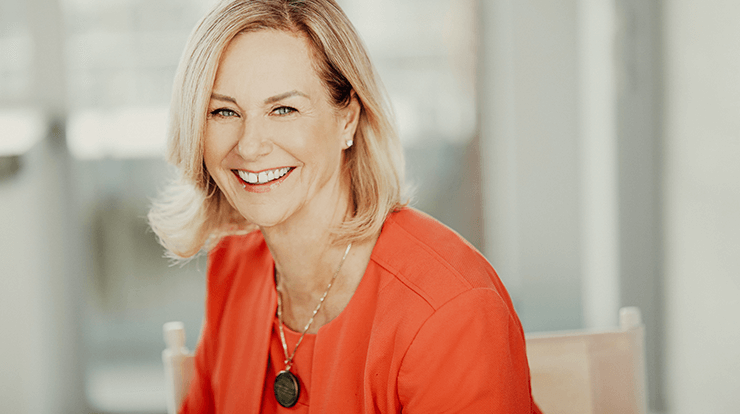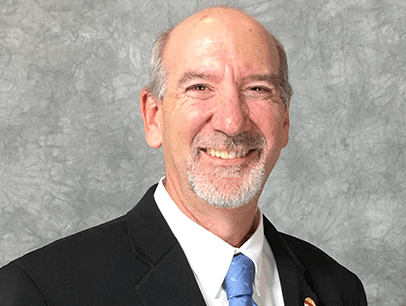Toastmasters know how rewarding it is to help a fellow member develop new skills to improve their professional and personal life. Imagine doing that a thousand times over—hundreds of thousands of times, even.
The leaders who comprise the Toastmasters International Board of Directors can positively impact every one of the organization’s more than 300,000 members. Reflecting a global perspective, they work together to shape the vision, strategies, and policies of Toastmasters International. Board Members help clubs and Districts achieve success, meeting and motivating members throughout the world.
In the process, they also boost their own communication and leadership skills.
So why not consider running for the Board of Directors?
The position may be less intimidating—and more satisfying—than you think. And you might have just the right combination of skills, enthusiasm, and commitment.
Recently, four Past International Directors reflected on their experience as Board Members: Monique Levesque-Pharoah, DTM, of Canada, an International Director from 2016–2018; Don Bittick, DTM, of the United States, 2017–2019; Deepak Menon, DTM, of India, 2013–2015 (Menon served as International President in 2019–2020); and Morag Mathieson, DTM, of Germany, 2017–2019 (Mathieson is currently the organization’s First Vice President).

They emphasize that Board service is deeply gratifying.
“The most meaningful aspect was the honor of representing every member from every country in the world—by participating in healthy, respectful Board discussions that would result in adding value to as many members as possible,” says Bittick.
Adds Levesque-Pharoah: “I grew a lot through my Board experience. I have never been afraid to speak up but I’ve learned to contribute differently and more strategically.”
How the Board Works
The Toastmasters Board is composed of 19 elected members—14 International Directors who each represent a different Toastmasters region in the world, and five International Officers: International President, International President-Elect, First Vice President, Second Vice President, and Immediate Past President. (Toastmasters’ Chief Executive Officer is also a member of the Board, but doesn’t have voting privileges.)
Any qualified member can run for International Director, a two-year position (see the sidebar on the right for qualification information). However, you must serve as an International Director before you can be elected an International Officer. If you are interested in becoming an International Director candidate, submit your Letter of Intent by October 1. The Toastmasters International Leadership Committee nominates candidates from the pool of applicants.
It’s the Board’s job to ensure the organization’s overall strength and growth. Board Members tackle a wide variety of Toastmasters practices, principles, and issues, incorporating member needs into all their organizational decisions. Among other responsibilities, they must:
- Participate on committees to support Toastmasters’ strategic direction and purpose.
- Approve and oversee the organization’s budget and financial matters.
- Work with Region Advisors to help Districts progress and achieve success, including speaking regularly with District leaders.
- Connect with members at events such as District visits, Mid-year Training, and the International Convention.
- Facilitate at District Leader Training.
Personal Impact
Levesque-Pharoah, Bittick, Menon, and Mathieson say they wanted to be an International Director to use their Toastmasters skills and experience to benefit others. In serving, they found satisfaction connecting with members and leaders. “I experienced many meaningful moments on District visits, meeting our members and encouraging and inspiring leaders to take their next step,” says Mathieson. “It’s heartwarming when you get a ringside seat on someone’s journey of personal development.”
Bittick says the experience was so uplifting that he retired early from his 35-year-plus career in information technology—and did something he had always wanted to do: become a high school teacher.
“Words can’t adequately express how much I learned about myself as a person, as a member, and as a leader,” he says. “The skills that I developed and improved upon were transformational, and I don’t believe this could have been accomplished anywhere else.”
Here are more reflections from Levesque-Pharoah, Bittick, Menon, and Mathieson. (Responses have been edited for length and clarity.)
What were the most meaningful and enjoyable aspects of serving on the Board?
Levesque-Pharoah: I had served on boards before and this was the first time I felt everyone was contributing for the right reasons. Everyone had worked so hard to get there and had so much appreciation for the organization that had helped them. Every discussion and decision was through that lens.
One of my favorite specific experiences was when I was asked to chair a subcommittee where we recommended work toward mediation support. It was exciting to see others feel the same way about conflict at the strategic level: that not addressing conflict certainly impacts not only the journey of our most important asset—our leaders—but also impacts our brand and strategic focus greatly.
Menon: The most meaningful experience for me was how the Board acted with agility to make nimble decisions during the time of the pandemic that ensured the safety and well-being of our members and leaders all over the world.
Bittick: One of the most enjoyable aspects of serving on the Board was the blessing of having meaningful conversations with many of our amazing members around the world, and learning how much more we had in common than we might have thought.
What was it like to work with District leaders throughout your region?
Mathieson: I loved listening to our District leaders’ perspectives and ideas. This gave valuable feedback on some aspects of the Board’s work.
It was also great to see their personal growth over the course of one or two years while you are the International Director from a region. Many of them ask for advice about their leadership journey and that’s opportunity for mentoring moments.
Bittick: I had served as a Region Advisor for two years prior to serving as an International Director, so I already had the honor of knowing the region’s incredible District leaders. Outside of the region, I was able to meet and become friends with District leaders around the world. I have the utmost respect for all members who served, are serving, and will at some time serve in leadership positions throughout the organization.
How did you grow from your Board service and improve your skills?
Menon: There are multiple skills that are honed while serving on the Board of Directors. Team building and team management involving the highest achievers and performers of the organization are invaluable skills gained through this experience. Gaining a better understanding of strategic planning and its implementation is another example. In the course of my service, I developed more empathy and compassion, which aided me in decision-making, which in turn was also guided by our core values—integrity, respect, service, and excellence.
Mathieson: Preparing to run for an International Director position makes you look at yourself and invites you to share who you are as a leader. The experience of speaking to members all around the world gave me a broader perspective of who we are as Toastmasters while at the same time increasing my confidence to share my thoughts and ideas.
Was the time commitment manageable, and how did you balance your professional responsibilities with your responsibilities as a Board Member?
Levesque-Pharoah: When I was in discussions for a new job, I set the stage early on and let them know I was running for the Toastmasters International Board. I negotiated extra time off for professional development as well as pre-approved clearance for the time needed for the Board meetings and the International Convention.
All dates and meetings for Board committee work were by consensus, so it was very manageable.
Menon: I had learned from my District leadership days that leadership in Toastmasters was time-consuming. Therefore, I developed a practice to divide my day into buckets and allocate to each bucket a singular activity, whether that be personal, professional, or Toastmasters related. This has
instilled discipline into my schedule, and I have been able to manage my time quite effectively by utilizing this strategy. 
Paul Sterman is senior editor, executive and editorial content, for Toastmasters International. Reach him at psterman@toastmasters.org.
Related Articles

Leadership
Leadership Is About Behavior, Not Titles

Profile
Meet Margaret Page, DTM

Profile






 Candidate Qualifications
Candidate Qualifications
